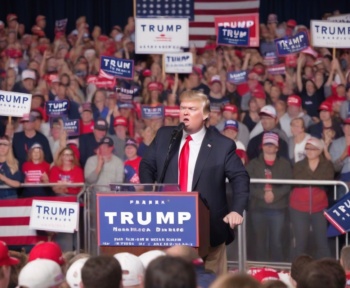The world of mixed martial arts (MMA) was rocked by a significant development as Conor McGregor, a prominent figure in the sport, was found liable in a civil trial for sexually assaulting a woman in a Dublin hotel penthouse back in 2018. This verdict, delivered by an Irish civil jury, marks a crucial point not only for McGregor but also magnifies lingering societal issues surrounding the treatment and safeguarding of women, particularly in situations involving high-profile personalities.
The case pivoted on the distressing allegations brought forth by an anonymous woman, highlighting her ordeal. She accused McGregor of brutally assaulting her after an evening laden with extensive partying. During her testimony, which was emotionally charged to the extent of necessitating numerous breaks, she recounted how McGregor had allegedly pinned her to a bed and choked her multiple times. She presented evidence of her physical injuries, which included substantial bruising and a bloodied scratch, underscoring the severity of the incident.
In response, McGregor unequivocally denied the accusations. His defense painted the picture of a consensual encounter, with him arguing that the nature of their sexual interaction was intense but consensual and denying any claims of violence or coercion. Despite his assertions, the jury concluded otherwise, ruling against McGregor and finding him liable for sexual assault. The persuasive nature of the evidence and testimonies presented tipped the scales in this decision.
The implications of this verdict are profound not only legally, with the plaintiff being awarded nearly 250,000 euros in damages, but also in terms of public perception. McGregor, a figure synonymous with the combat sport due to his flamboyant personality and notable victories, left the courthouse without making immediate comments and later expressed his intention to appeal the verdict. He noted discrepancies in the evidence shown to the jury compared to that reviewed by the director of public prosecutions and declared an ongoing commitment to his family and career despite the setback.
This legal confrontation has serious ramifications for McGregor’s public image. Known for his prowess in the MMA ring, he now faces a barrage of scrutiny, focusing more on his personal actions rather than his athletic capabilities. The trial and its outcomes have ignited dialogues on accountability, particularly the kind expected from celebrities and public figures. This has further cast a spotlight on the inherent challenges in addressing and navigating sexual assault allegations, especially involving individuals with significant influence and public standing.
In response to the verdict, social and cultural repercussions were swift. Advocates and supporters of the plaintiff lauded her bravery and resilience in seeking justice, highlighting the case as both a beacon of hope and a precedent for future legal recourse in similar situations. These developments have stoked discussions on important themes such as consent, the power dynamics at play in interactions between celebrities and other individuals, and the broader implications of supporting and believing survivors.
Likewise, the legal nuances of McGregor’s case, where criminal charges were not pursued but civil liability was established, have raised significant considerations about the pathways available to victims of assault to seek remedies. It underscores the importance of differentiated legal avenues that can potentially empower survivors.
This high-profile case also acts as a pivotal reference point for enhancing resources and support systems for victims of assault. It emphasizes the necessity for robust and accessible assistance which can help navigate the often complicated and daunting paths of the legal framework. Through this, it fosters an environment where victims can feel more confident in speaking out and advocating for justice.
The fallout from McGregor’s trial transcends the immediate legal outcomes. It challenges the sports world to reconsider its stance on handling allegations of sexual misconduct, ensuring a more vigilant and just approach. As McGregor likely pursues an appeal, the effects of this case will continue to resonate, potentially instigating vital transformations in the way such sensitive cases are perceived and addressed in public spheres.
This case reiterates the critical need to listen to and validate survivors’ experiences, striving for a societal fabric that is not only responsive but also deeply respectful of their narratives. The verdict in Conor McGregor’s trial thus stands not just as a conclusion to a legal challenge, but as a landmark moment in advocating for a safer, more equitable world.




